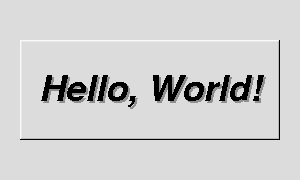How To Write A Query Letter
The Rebel Christian caters to Indie and self-published authors but there are times where every writer may have to compose the dreaded query letter. Even if you aren’t looking for an agent, you might have to query an editor or reviewer—like me! I’ve spent nearly five years in the writing industry now, I’m not a traditionally published author (yet) but I can at least share the things I’ve learned so far.
Let’s start with the basics:
What is a query letter?
If you’ve made it this far in your literary journey you should already have a good idea of what a query letter is, but I’ll explain it very quickly now just to be fair.
A query letter—or an inquiry—is a letter asking someone, typically an agent, to consider your work for a number of reasons. You could query an agent for representation, query an editor for … well … editing. Or you could query a reviewer to read your work and post a critique. As the sole contributor to The Rebel Christian, I receive hundreds of queries a year. I know what good ones and terrible ones look like, I know what gets me interested in someone’s work, and I know what completely turns me off. While I haven’t snagged an agent for myself just yet, I can show you a few examples of queries I came across that were great and some that were not so great.
A basic literary query is one page and typically consists of three parts: an introduction, a summary of the project, and a description of you—the author. Some agencies will ask for more; what inspired you to write this book, why you think that agency is a good fit for you, etc. You can weave the answers to those questions into your three paragraphs if you’re clever enough.
The Introduction:
This is where you include the title, genre, and word count of your book, as well as the reason you picked that agent/editor/reviewer to query. You can also add a sentence or two about the book in this section but if you feel your first paragraph is a bit cluttered, I’d save the details for later.
Here’s a great example of an intro paragraph about a YA romance:
Hi [Insert Name], I came across your agency’s website while searching for someone who represents YA fiction. According to your profile, you’re looking for a lighthearted romance; I think you’ll appreciate a query about a quirky teen falling for his best friend. Please enjoy my YA romance of 70,000 words called Love.
Of course, this is just an example, you can add or take away from this as you please but its an excellent sample that includes all the basic information about the book as well as the reason why it might be a good fit for this agent.
One thing I always dislike in queries is getting a very generic introduction;
Hello Reader, my name is Bob, would you consider my YA romance of 70,000 words called, Love? Please find all necessary information below.
While this intro does include everything you need, it is totally impersonal and reads like something you could copy and paste to a hundred different agents. Don’t be afraid to include little bits of your personality in your query. Yes, you want things to look professional but remember: a query letter is still a representation of your writing. If you’re querying for a comedy, try to work in some humor. If you’re querying for romance, try to evoke emotion where you can. I know not every angle is possible, but it’s important that you present yourself as a person—not a robot regurgitating info over and over.
The Summary:
In this paragraph you should describe the book, think of it as a pitch—what would you say to an agent if you bumped into them in an elevator? What would be printed on the back or inside cover of your story? If you could summarize your book, now is the time to do it.
Here’s an example I thought was very neat:
Chris has always been a shy boy; growing up, he was so timid he could barely speak until he met Ericka, his outgoing secret crush. Ericka got Chris to try out for the marching band, she was always there to be his partner in science class, and when Chris didn’t have a date for junior prom, Ericka happily volunteered. It doesn’t take long for this crush to grow into a gentle love but when Chris finds out Ericka is moving away after high school, he realizes his chance at true love is getting away. Chris has a choice to make; get Ericka to fall for him or watch her walk away.
This paragraph may be a bit long but it accomplishes everything an agent/editor/or reviewer would love to see. I know I would enjoy this at least! I know who the main characters are, I know the romance is something that’s been developing over time which adds tension and a bit of anxiety to the story, and I know there’s a time limit here. Chris has a big goal to accomplish but time is not on his side. There’s a risk here; go for it or watch it fall apart. Not only is this summary informative but it leaves the reader asking questions and wondering what might happen next.
Author Description:
This last paragraph is a little tricky. Here, you’ll want to introduce yourself and give a description of your writing credentials. If you’re a new author, don’t worry, many agencies are on the look out for fresh talent. Don’t be ashamed to say this is your very first novel, even the best writers started somewhere.
Check out this example and see where you can plug in your own information:
My name is Jane Doe and my writing experience includes a self-published novel which has sold 10,000 copies on Amazon in the last two years. I’m an avid reader who loved literature enough to get a BA in English. Additionally, I placed in the semi-finals for a national short story contest in 2016, and as a Latina writer, I’m passionate about showcasing diversity in literature.
This little author bio is packed with information. I know this writer is Latina, which is excellent for agents searching for OwnVoices writers. I know she isn’t a well-known author but has experience writing with the success of her self-published novel. I also know that she has some training in writing with her college degree, and I know this training was validated by her placement in a national writing contest.
Everything I need to know about this author—pertaining to writing—is right there in that paragraph. I don’t need to know about her dog, I don’t need to know that she’s been happily married for 12 years. I don’t even need to know her age—in some cases that information can be a plus, if you’re an exceptionally young or exceptionally senior writer. But for the most part, personal information to that extent is unnecessary. Make sure you include everything you possibly can about writing, brag a little! Brag a lot! But keep it focused on writing. Stepping out of line here could draw a negative response.
My last word of advice; always include a bit of your own personality in your queries but keep things professional and try not to be cheesy. Don’t say things like;
The ball is in your court.
Your move.
What happens next?
Above all, stay encouraged. The literary industry is still part of the entertainment industry. That means it is incredibly subjective; a rejection from an agent doesn’t mean your writing or your story is bad. It simply means that particular agent is not interested. Think of all the books you’ve picked up and never finished, all the previews for movies you decided not to see. Those are rejections! As easy as it is for you to say, nahh, I’m not a fan of this tv show, it’s the same thing with an agent reading your query. Maybe your query is excellent, your story is well-written, and it’s a great idea. But that agent isn’t interested in that plot, or maybe they’re looking for something with more humor. There’re a thousand reasons why someone decides to pass on a project and not one of them is meant to be taken personally.
It might hurt to receive a rejection but remember that’s simply part of the process. Sometimes rejections make you stronger. There was a time I queried an agent about a YA contemporary I’d written, she responded by saying the premise was intriguing, but the writing was not strong enough. It hurt to see how close I’d gotten to snagging an agent but at the same time I felt proud and I felt validated. My story is good, my query is fine—my writing isn’t strong enough right now but with time and effort I can change that! I could have gotten bitter about it and given up or sent a snarky email back to that woman but instead I took it as an opportunity to strengthen my talent and strengthen my faith in Christ Jesus. With much prayer and hard work, I took a closer look at my writing that I wouldn’t have before. Now I look forward to the next time I sit down to write a query letter and I’m more confident about it now than I was before getting rejected.
Its all about the way you look at things; if you’re determined to be a victim, to be stubborn, and to reject everyone else’s opinion then this may not be the industry for you. Writing is full of different tastes and styles, sometimes it isn’t about how good you are but how good you can be. Keep your head up and always move forward.
God bless


